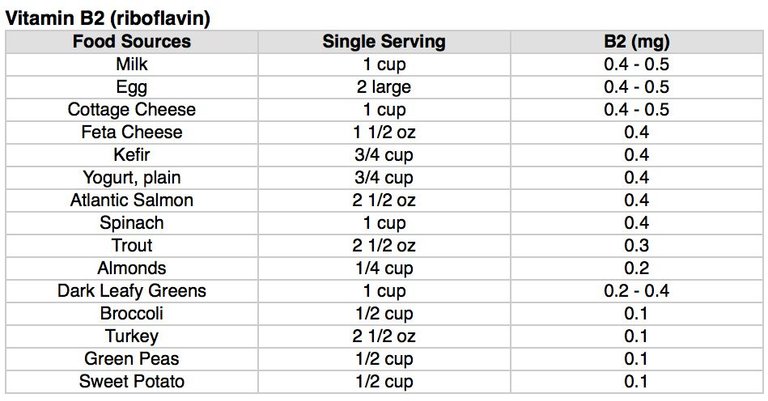Through looking at an essential nutrients role in health and its characteristics of deficiency, one can come to appreciate its value in good nutrition.
Vitamin B2 Role In Health
Vitamin B2 or riboflavin is essential for energy production, maintaining healthy blood cells, facilitating in healthy metabolism, as well contributing to growth and tissue repair. Riboflavin also works as an antioxidant, fighting damaging particles in the body known as free radicals. Vitamin B2 is water-soluble, meaning it does not store in the system and must be replenished daily, like all the B vitamins. Vitamin B2 is used in combination with the other B vitamins because it must be present in high amounts in order for B6 and folic acid to function properly.
Characteristics of Vitamin B2 Deficiency
A riboflavin deficiency is characterized by anemia, fatigue, sluggish metabolism, nerve damage, dry cracked lips, skin inflammation and disorders often visible around the nose and face, inflamed mouth and tongue, sore throat, swelling of mucus membranes, numbness and itchy eyes and mood swings characterized by anxiety and depression.
A riboflavin deficiency is rare but can occur in elderly people, people with compromised digestive systems due to illness and alcoholics as heavy drinking can deplete the body of vitamins and nutrients.
Vitamin B2 Food Sources
Vitamin B2 food sources include animal products like eggs, fish, milk, yogurt and cheese; as well dark leafy greens, almonds and a few vegetables.
Nutrient-Rich Whole Food Sources for Vitamin B2

This chart lists the best food sources for vitamin B2, along with that food source’s single serving size and the amount of vitamin B2 in that single serving.
Vitamin B2 Daily Intake Recommendations for Child and Adult

These figures are referenced from the Dietary Reference Intake (DRI) 2005 system; used in Canada and the United States. The DRI system provides the minimum daily intake requirements of vitamins, minerals and nutrients for child and adult; males and females.
Written by: J. Marshall from http://nutritionalhealingrecipes.com